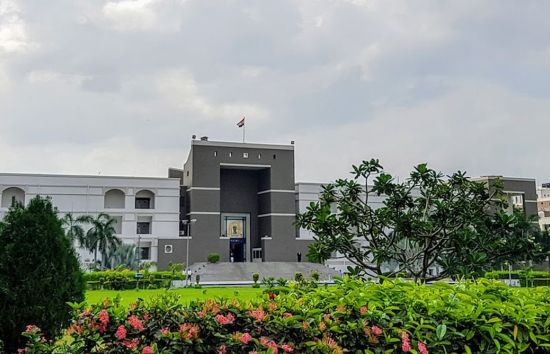By Rishi Patodia-
The Gujarat High Court on Friday set aside a State Government Resolution barring the collection of tuition fees from school students while schools remain physically shut amid the COVID-19 pandemic (Nareshbhai Kanubhai Shah v. State of Gujarat).
However, the Court has added that the State Government should meet with representatives of unaided private schools to chalk out a solution that is amenable to both the interests of the school management as well as the parents and students.
The order passed by a Bench of Chief Justice Vikram Nath and Justice JB Pardiwalla states,
“We request the State Government to once again convene a meeting with the office bearers of the association of unaided private schools and try to arrive at some understanding which is equitable in nature. In other words, the Government should make all possible endeavour to strike a balance so as to protect the interest of the parents as well as the management of the private unaided schools.”
The Court was hearing a plea moved by various petitioners including the association of unaided schools imparting pre-primary, primary, secondary and higher secondary education in Gujarat.
Under challenge was a July 16 resolution concerning the payment of school fees during the COVID-19 lockdown period when schools remained physically shut.
Notably, clauses 4.1, 4.3 and 4.4 of this resolution provided:
- Schools shall not charge any tuition fees for the period starting from physical closure of the schools till the actual physical opening of schools to start functioning regularly again.
- The expenditure incurred in the salary of teaching and non- teaching staff of the Schools shall be considered by the Fee Regulatory Committee under section-10 of that Gujarat Self- financed Schools (Regulation of Fees) Act, 2017 while determining the fees for the next year.
- If any parent has paid an advance fee, the school should adjust the same in the fees to be charged in the next academic year.
The Court has quashed all of the above clauses in its order last week, while urging the Government to issue a fresh resolution once all issues between the Government and the school management representatives have been amicably resolved.
The Court, however, directed both the Government and the association must bear in mind a need to balance the interests of both the schools and the students and their families. To this end, the Court has issued the following guidelines for consideration:
- Schools should not charge for any fees apart from tuition fees. No fees for extra-curricular activities should be charged.
- Tuition fees cover salary, establishments and curricular activities, the maintenance expenditure which continues to be incurred by schools, even during the period of lockdown.
- Unaided private schools, receive no funds from the government, are entirely dependent on fees, to defray their daily expenses.
- Expecting smaller institutions to bear their own expenses without receipt of tuition fees will force many institutions to shut down, permanently.The fate of the students studying in such schools will be at stake.
- Parents need to pay tuition fees to keep institutions running. Arrangements can be worked out for payment of fees in instalments or on monthly basis but complete non-payment of tuition fees will hit the level of education.
During the course of its judgment, the Court also emphasised that the over-arching priority in these times are the children.
The Bench commented that remote, online education should not be seen as futile, while also observing that school teachers and staff are working hard to adapt the education system to cater to the educational needs of children amid the COVID-19 pandemic. As such, it is important that teachers and school staff are paid, the Court said.
The Bench was also prompted to question “If teaching is a noble and charitable cause as stated in the impugned resolution, why does the State not take steps to waive collection of tuition fees of colleges. Why should the waiver not be for all educational institutions, schools and colleges, both?”
Given the economic strains brought about by the pandemic on the families of school going students, the Court further urged the schools to consder allowing the payment of fees on a monthly basis or in installments.
“A flexible method of payment might encourage financially struggling families to keep their child’s education going, instead of pulling him out of school”, the Court observed.
The Court also asked the concerned parties to deliberate on the sustainability of online education. As noted in the judgment, “Presently, the schools have resumed providing of online education but for how long can this be sustained by schools, more particularly the smaller institutions?”
“We hope and trust that the State Government and the association of unaided private schools will be able to reach to an amicable understanding.”
the Court said.
Before parting, the Bench also reiterated its plea that the stakeholders should emulate Carpathia, the only ship that came to the rescue of some passengers aboard the Titanic in 1912, despite being the farthest of three ships (at 94 kilometers).

